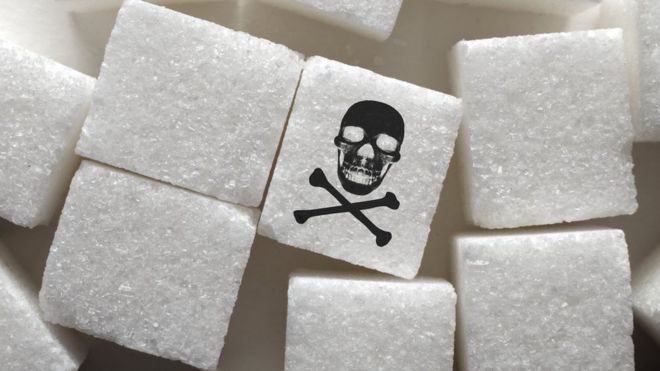Do you ever wonder why people who are sad or depressed are
told they should eat sugar? Rumors have it that sugar is actually supposed to
boost serotonin and dopamine levels in your brain. For those of you who don’t
know what serotonin is, it is a neurotransmitter that is responsible for
regulating mood, social behavior, appetite, digesting, memory and sexual desire
and function2. Dopamine is also a neurotransmitter it is
known as the feel-good neurotransmitter1. It’s very common to find
sugar in the everyday foods we eat, whether those foods are natural and processed.
Sugar is an essential part of cooking and baking, and people frequently use it
in their coffees and teas. The chemical formula of sugar is C6H12O6.
Unfortunately, sugar is found in almost everything we eat,
even if something is “sugar-free” there could be some alternative artificial sweeteners
and sugar alcohols added. The benefit of alternative sugars is no calories, the slower effect on your blood sugar levels, and minimizes tooth decay or cavities6.
These alternatives come out to be a lot sweeter than
regular sugar, but in return, you need less of it, so when you see a label that
is “sugar-free” it could be using artificial sweeteners but have less than 0.5
grams of sugar per serving3. Sugar that we know as the little white
crystals typically come from beets and sugarcane that have been purified and
crystallized4. You can also find sugar in plants and it can also be
synthesized in labs, other minor commercial sources are sorghum and sugar
maples3. There are also natural alternatives

Figure 1. Image was taken by; Roberts, M. ( 2018, May 23). Are sweeteners healthier than sugar? Retrieved February 10, 2020, from https://www.bbc.com/news/health-44208504
Sugar is not toxic if consumed in moderation, obviously, if
you are consuming an obscene amount of it, there will be repercussions on your
health such as diabetes, high blood pressure, metabolic syndrome, nerve damage,
kidney damage, blindness, and gastrointestinal disturbance5. A legal dose of sugar is 30g/kg, so with someone of my weight, I’d have to eat about 1836kg
of sugar to become toxic5. I picked sugar because I don’t know about
you, but my metabolism is not what it used to be 7 years ago. So when I eat, I find
myself more cautious with my sugar intake. I do enjoy the odd treat here and
there, but if I can, I will do my best to avoid any additional sugar in my meals.
Sugar isn’t going to ruin, consuming it in moderation is key.
1Dopamine. ( n.d. ). Retrieved February 10,
2020, from https://www.psychologytoday.com/us/basics/dopamine
2McIntosh, J. ( 2018, February 2).
Serotonin: Facts, uses, SSRIs, and sources. Retrieved February 5, 2020, from https://www.medicalnewstoday.com/articles/232248.php
3What is the difference between no added
sugar and sugar-free?: Nutrition. ( n.d. ). Retrieved February 11, 2020, from https://www.sharecare.com/health/nutrition-diet/whats-no-added-sugar-free
4Singh, R. P., & Clarke, M. A. ( 2019,
May 30). Crystallization. Retrieved February 9, 2020, from https://www.britannica.com/science/sugar-chemical-compound/Crystallization
5Sucrose. ( n.d. ). Retrieved February 12,
2020, from https://pubchem.ncbi.nlm.nih.gov/compound/Sucrose#section=Related-Compounds-with-Annotation
6Posted under Health Guides. Updated 30
March 2018. Related Content. ( 2018, March 30). Sugar Substitutes and Artificial
Sweeteners. Retrieved February 10, 2020, from
https://youngwomenshealth.org/2013/12/12/sugar-substitutes/
No comments:
Post a Comment